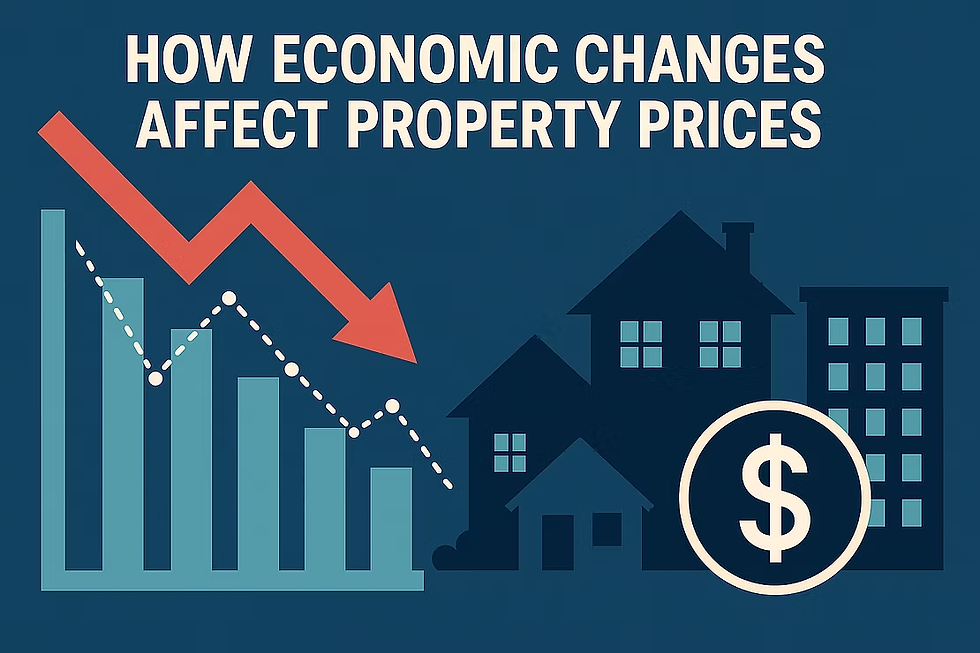How Economic Changes Affect Property Prices
- Digital Transformation
- Oct 22, 2025
- 2 min read


Economic changes have a profound impact on property prices, influencing both short-term fluctuations and long-term trends. For investors, homeowners, and developers, understanding these effects is crucial for making informed decisions and capitalizing on market opportunities.
The Relationship Between Economy and Property Prices
Property prices are closely tied to overall economic health. When the economy is strong, employment rates are high, income levels rise, and consumer confidence builds, all of which tend to increase demand for real estate. Conversely, during economic downturns, reduced income and job insecurity often lead to decreased demand and falling property prices.
Key Economic Factors Impacting Property Prices
Interest Rates
Lower interest rates reduce the borrowing cost for mortgage seekers, making it easier to buy property. This often drives up demand and property prices.
When central banks raise interest rates to curb inflation, mortgage rates increase, cooling demand and putting downward pressure on prices.
Inflation
Moderate inflation can push property prices higher as costs for construction, land, and materials increase, and investors seek tangible assets as a hedge.
High inflation, however, can lead to unstable property markets as affordability declines and borrowing becomes more expensive.
Economic Growth and GDP
Strong GDP growth correlates with rising property prices due to increased employment, disposable income, and investment confidence.
Economic stagnation or recession typically results in subdued property market activity and falling prices.
Unemployment Rates
High unemployment reduces housing demand as fewer people have income stability, causing prices to drop.
Conversely, low unemployment encourages property purchases and can escalate property prices.
Government Policies and Taxation
Policies such as tax incentives for homebuyers, infrastructure development, and supportive zoning laws stimulate real estate demand.
Tax hikes, stricter lending criteria, and regulatory changes can depress property values.
The Impact of Global Economic Events
Global shocks — such as financial crises, geopolitical tensions, or pandemics — can lead to rapid property market shifts. For instance, the 2008 global financial crisis caused a significant drop in property prices worldwide due to tightened credit and investor panic. Similarly, recent pandemic-induced economic adjustments have led to regional property booms and busts, depending on local market resilience.
Long-Term Trends and Market Cycles
Property markets tend to follow cyclical patterns influenced by broader economic cycles. During expansion phases, prices generally rise; during contractions, prices stabilize or decline. Smart investors watch macroeconomic indicators to time their entry and exits, aiming for long-term growth rather than short-term volatility.
Conclusion: Navigating Property Prices Through Economic Changes
Economic shifts are inevitable and significantly influence property prices. Understanding how interest rates, inflation, GDP growth, employment, and policy changes interact enables stakeholders to anticipate market movements. While economic downturns may temporarily depress prices, they often present opportunities for strategic investment, especially when fundamentals remain strong. Staying informed about macroeconomic trends empowers investors and homeowners to make decisions that optimize growth and minimize risk.



Comments